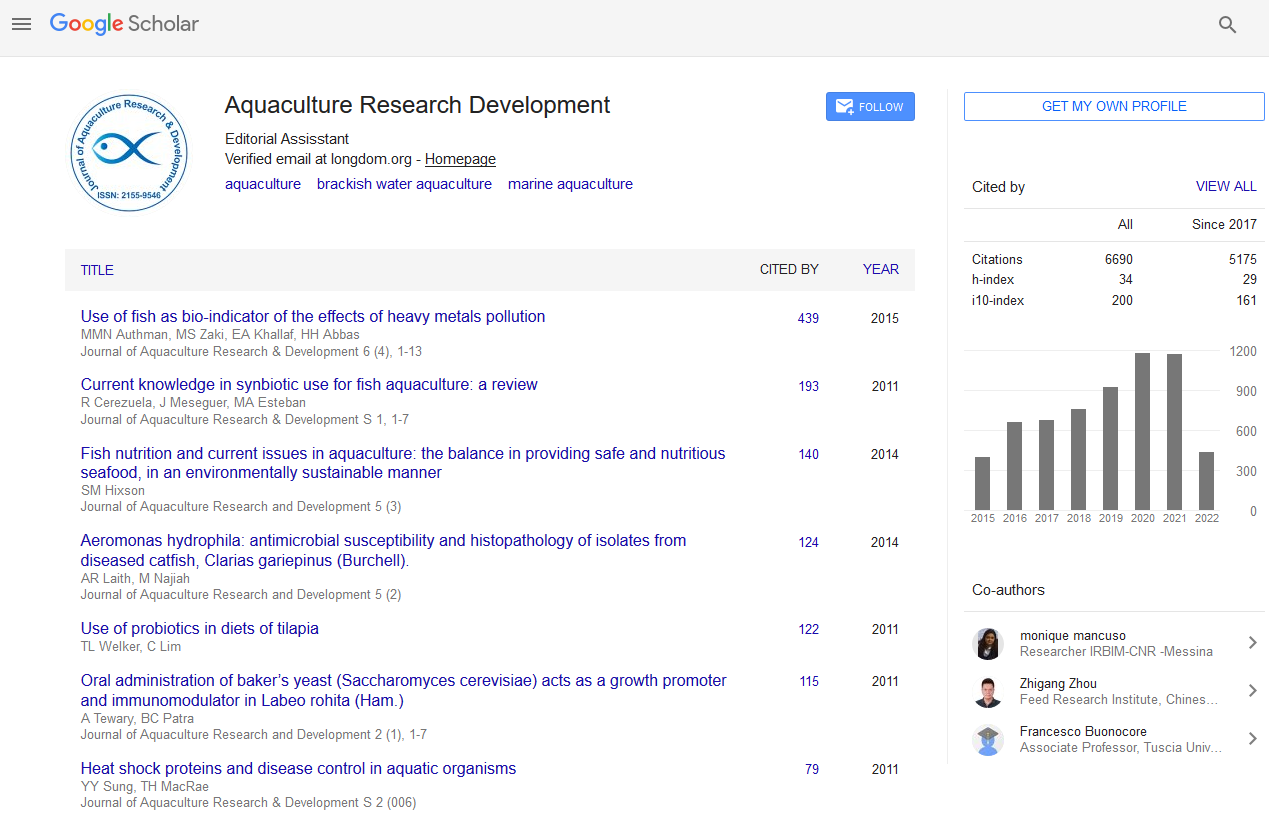PMC/PubMed Indexed Articles
Indexed In
- Online Access to Research in the Environment (OARE)
- Open J Gate
- Genamics JournalSeek
- JournalTOCs
- Scimago
- Ulrich's Periodicals Directory
- Access to Global Online Research in Agriculture (AGORA)
- Electronic Journals Library
- Centre for Agriculture and Biosciences International (CABI)
- RefSeek
- Directory of Research Journal Indexing (DRJI)
- Hamdard University
- EBSCO A-Z
- OCLC- WorldCat
- Scholarsteer
- SWB online catalog
- Virtual Library of Biology (vifabio)
- Publons
- MIAR
- University Grants Commission
- Euro Pub
- Google Scholar
Useful Links
Share This Page
Journal Flyer

Open Access Journals
- Agri and Aquaculture
- Biochemistry
- Bioinformatics & Systems Biology
- Business & Management
- Chemistry
- Clinical Sciences
- Engineering
- Food & Nutrition
- General Science
- Genetics & Molecular Biology
- Immunology & Microbiology
- Medical Sciences
- Neuroscience & Psychology
- Nursing & Health Care
- Pharmaceutical Sciences
Ecohydrology - The integrative science framework for development of sustainable aquaculture
2nd Global Summit on Aquaculture & Fisheries
July 11-13, 2016 Kuala Lumpur, Malaysia
Maciej Zalewski
European Regional Centre for Ecohydrology, Poland
Keynote: J Aquac Res Development
Abstract:
A global need for increased and sustainable healthy food production together with a global decline in fishery stimulate dynamic development of aquaculture. However, in many situations this development negatively impacts water quality in lakes, reservoirs, rivers and even some coastal waters. Ecohydrology provides a holistic framework for understanding and management of hydrological cycle and biological processes at catchment scale. It allows not only for elimination of environmental risks generated by aquaculture but also amplification of opportunities by identification of optimal areas for its development in a river basin. Following the ecohydrology theory, in-depth understanding of water-biota interplay creates a background for development of efficient ecosystem biotechnologies and cost-effective system solutions for mitigation of negative impacts of aquaculture. This in turn will creates opportunities for further sustainable development of aquaculture. Ecohydrology as an integrative environmental science provides opprtunity for upgrading the five sustainability dimensions which are: water resources, biodiversity, ecosystem services, resilience and cultural heritage (WBRSC) and thus, the sustainable management framework for aquaculture. Simultaneous consideration of all the five elements realised with the use of ecohydrological biotechnologies will provide an important stimulus in creating the sustainable future we want.
Biography :
Maciej Zalewski is a Professor of Lodz University, Department of Applied Ecology and Director of European Regional Centre for Ecohydrology of the Polish Academy of Sciences. His research interests evolved from Fish Bioenergetics towards River Ecosystems Ecology, where he proposed the “Abiotic-Biotic Regulatory Concept” that defines hierarchy of factors determining structure of water communities along river continuum in different geographic zones. This theorem laid down foundations for a new paradigm for environmental sciences enclosed in Ecohydrology. He initiated the development of the Ecohydrology concept under the framework of UNESCO-IHP program and is a respected international expert in this field. As the expert of UNESCO, he supported establishment of Centres for Ecohydrology in Portugal, Indonesia, China, Argentina and Ethiopia. He is a Lecturer in national and international teaching programmes. He has been a Chairman and keynote speaker of over 100 international scientific conferences and symposia and is an author of numerous publications and book chapters. He is also the Founder and Editor-in-Chief of international journal of Ecohydrology & Hydrobiology, and member of editorial boards of Ecological Engineering, Brazilian Journal of Biology, Fisheries Management and Ecology journals.
Email: mzal@biol.uni.lodz.pl


